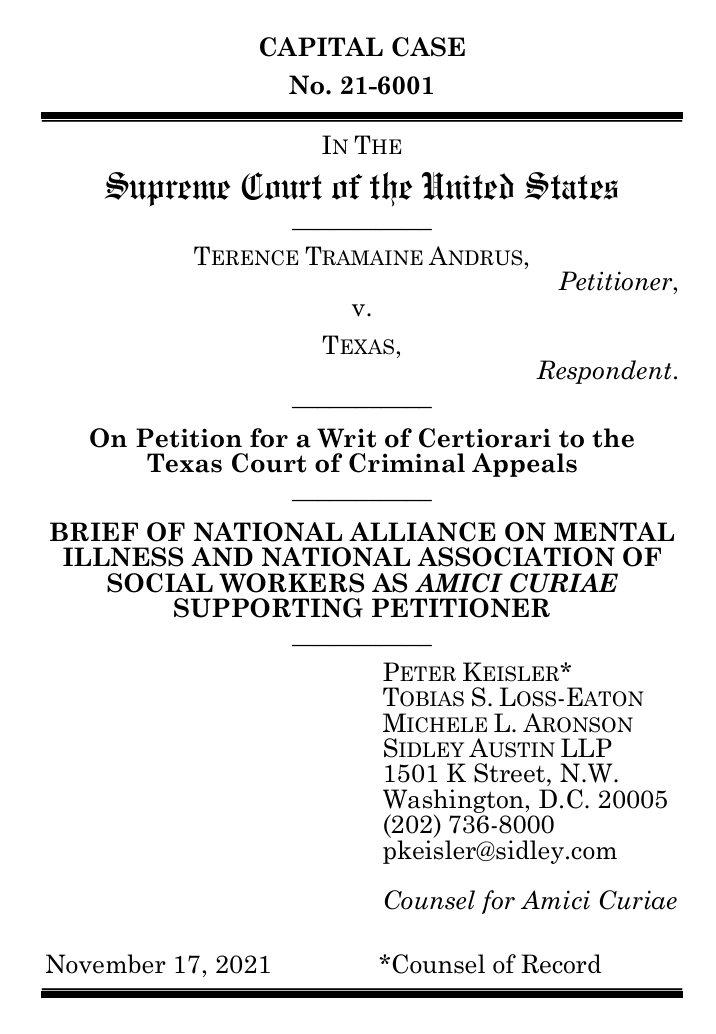
Summary of Argument
The Texas Court of Criminal Appeals (“CCA”) concluded below that Petitioner Terence Andrus’s mitigating evidence—which this Court described as “abundant,” “vast,” “compelling,” “powerful,” “myriad,” “voluminous,” and previously “untapped”—was actually “not particularly compelling,” “relatively weak,” and deserved “skepticism.” The CCA thus brushed aside evidence that Mr. Andrus spent his formative years in an environment plagued with crime and violence, raised in an unstable and abusive home by a mother whose drug use or symptoms of mental illness prevented her from adequately caring for Mr. Andrus or his four siblings. The CCA’s conclusions depended on the judges’ unsupported intuitions about how childhood trauma and mental illness manifest themselves. Not only are these intuitions unsupported by clinical research, but they also rest on inaccurate stereotypes about mental illness.
In fact, both settled clinical understandings and common sense show that the court below was wrong. In turn, a single juror could easily have concluded, in line with this Court’s prior decision, that this extensive mitigating evidence changed the balance of aggravating and mitigating factors for Mr. Andrus’s moral culpability. Because Mr. Andrus’s death sentence required a unanimous jury recommendation, the prejudice inquiry requires only “‘a reasonable probability that at least one juror would have struck a different balance’ regarding [Mr. Andrus’s] ‘moral culpability.’” Pet. App. 23 (citing Wiggins v. Smith, 539 U.S. 510, 537–38 (2003)).
Established clinical research shows that exposure to traumatic events in childhood—like those Mr. Andrus experienced as a child—has deep and enduring effects throughout a person’s life. Because exposure to abuse, neglect, violence, and instability during childhood can cause long-lasting psychological, behavioral, and social effects, evidence of exposure to childhood trauma can be powerful mitigating evidence. The CCA improperly discounted this evidence, which there is a “reasonable probability” a juror would have credited.
Further, the CCA’s mistaken intuitions about mental illness led it to misconstrue several facts as disproving any mental illness, when those facts are actually consistent with mental illness. For instance, people with mental illness may still be able to care for family members at certain points in time, or they may deny their mental illness or refuse treatment for it. Indeed, the record as a whole shows that Mr. Andrus has struggled with mental illness throughout much of his life.